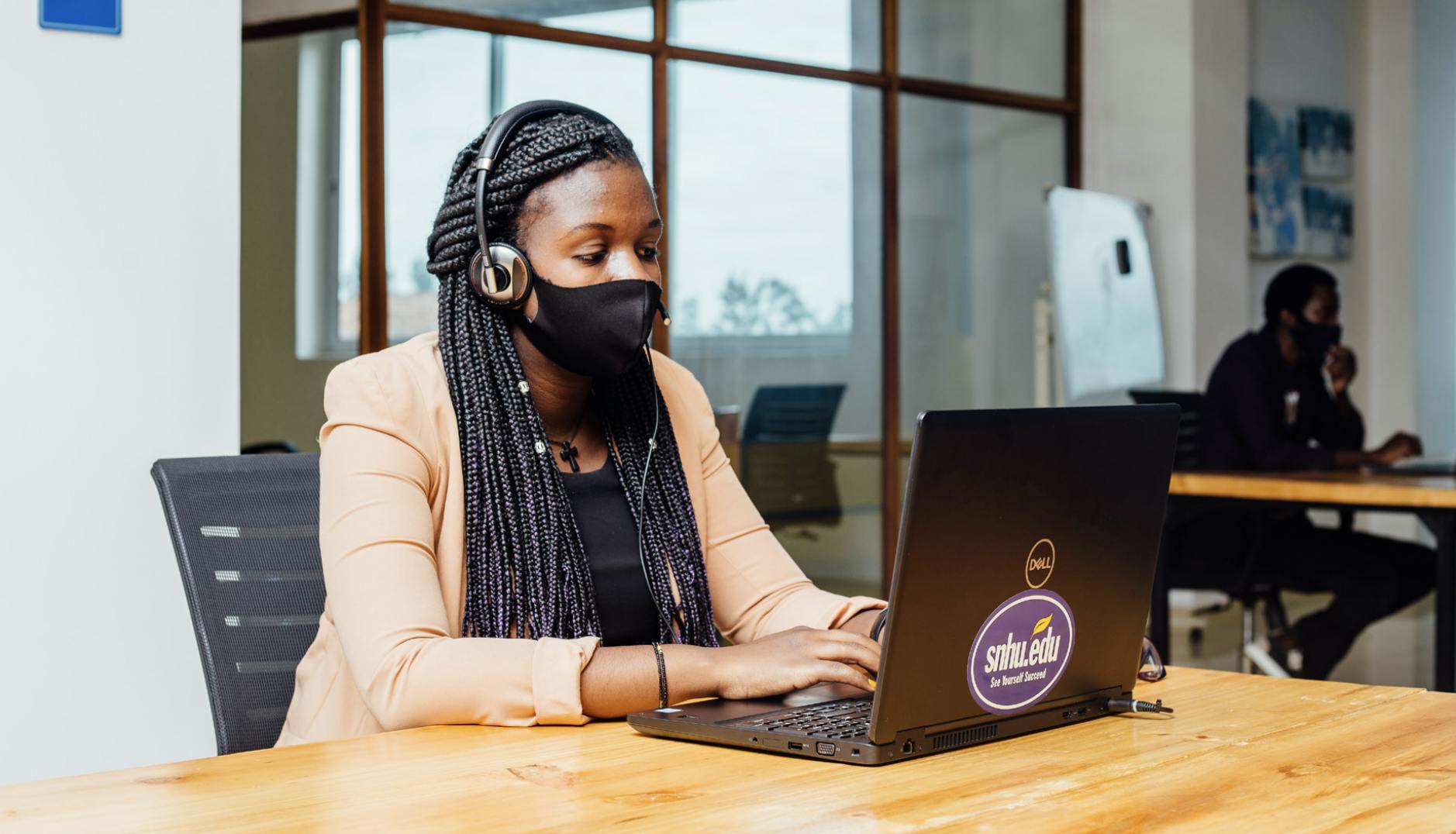
CLCC publications, 2020 Yearbook, https://connectedlearning4refugees.org/publications/
During the last year The Connected Learning in Crisis Consortium (CLCC) members and organisations set education pathways in fragile environments and strengthen the foundation to provide further capacity built for universities worldwide to increase online learning opportunities.
In response of global crisis and uncertainty throughout the COVID-19 pandemic this year the initiatives remain as crucial as mobilising political support from key stakeholders worldwide to provide technical assistance within emerging initiatives, support for the students and inclusion of refugees and people with disabilities.
These activities include the development of global minimum standards, capacity building and establishing a community of practice where committed stakeholders can share best practices and lessons learned.
IIE PEER & Bard College | Advocating for Syrian Youth
Ehab Badwi, 28, was awarded the IIE Scholarship for Syrian Students in 2018. He is currently pursuing a BA in Economics, Politics and Social Thought at Bard College Berlin (BCB) in Berlin. At the 2016 World Humanitarian Summit in Istanbul, Ehab Badwi founded the Syrian Youth Assembly (SYA). Young Syrians at the Summit came together to collectively make their voices heard, organizing for change on behalf of all Syrian youth. Since 2016, SYA has made progress advocating for Syrian youth’s educational opportunities. In a partnership with Coursera, SYA streamed 120,000 courses in Syria over two years.
Since then, Ehab is a Youth Leader at the Tertiary Refugee Student Network and has also contributed to the peace process in Syria by consulting with governmental bodies and hopes “to build a road map which shows how young people can participate.” He knows what a privilege it is to live in peace and pursue his passions through his education. He feels a deep sense of responsibility to lift up his community and help more refugees access higher education so that while investing in young people and their education, they can become committed leaders and advocates for other students living in contexts of conflicts or crisis.
“They like to learn, but they missed the opportunity because of the war. They are smart enough to educate themselves, but they just need to have the tools.”
Arizona State University | Innovative Education with Employment growth in Uganda
Arizona State University (ASU) launched the Education for Humanity (E4H): Powered by SolarSPELL (SSPELL) pilot project in 2019. The project combined a SolarSPELL and Moodlebox to create an offline, solar-powered technology that produces its own Wi-Fi hotspot. Students without access to the internet or electricity could use any internet-enabled device to access course materials.
In addition to the project’s innovative use of technology, the project appealed to learners because of its focus on key employability skills, such as agribusiness, and an array of 21st-century skills ranging from digital literacy to critical thinking.
E4H and Windle International Uganda recruited 30 learners from Nakivale Settlement, Uganda. Two facilitators were hired to administer the programme and guide learners throughout the course. Learners gained a range of skills to prepare them for employment.
When asked which skills contributed most to being hired, Birungi Eva, one of the newly hired War Child Holland (WCH) facilitators, responded “communication skills, business skills [and] computer skills” (personal communication, November 25, 2020).
Another new WCH facilitator stated that “The agribusiness project helped us to be self-reliant (sic) in education like studying without a professor and learning from home” (Muhammed, personal communication, November 29, 2020).
The learners also acquired unique technological and digital literacy skills by using the programme’s technology. For example, they developed an understanding of an offline wi-fi network, a micro-computer with a learning management system, and solar-powered panel and battery function.
**Jesuit Worldwide Learning | 2020: COVID-19 and a Decade
of Higher Education at the Margins**
Jesuit Worldwide Learning (JWL) and approximately 3,000 of its students have been impacted by COVID-19 to varying degrees. For most of their students, the main challenge has been isolation – including from their learning centre peers.
However, in some locations, a provided laptops, tablets, and internet data bundles to academic and professional students in Kakuma Refugee Camp, Kenya and Dzaleka Refugee Camp, Malawi. They also leveraged alternative communication tools (notably instant messaging and video conference applications) across all centres and programs in order to ensure continued learning and learning support.
All efforts were deployed to ensure learners’ sustained access to the Learning Management System, as well as to provide the necessary flexibility in terms of assignment deadlines.
This year also marks a decade of JWL’s work, providing higher education to marginalised communities. On the 29th of September, JWL and Regis University (USA) co-hosted the first global, virtual graduation ceremony for the 2020 Diploma graduates from learning centres in Kenya, Malawi, Iraq, Jordan, and Afghanistan.
Mastercard Foundation Scholars Program | 40,000 Students and Growing
Throughout 2020, the Mastercard Foundation Scholars Program continued developing young leaders who will drive social and economic change within their communities.
By 2030, the Program will continue to expand by enrolling and graduating an additional 15,000 young people in high-quality tertiary education and leadership development including 70% women; 25% refugees and displaced youth; and 10% young people with disabilities for a total of 50,000 Scholars since the beginning of the Program. To date, the Program has reached nearly 40,000 talented students, primarily in Africa.
In response to the COVID-19 pandemic, the Scholars Program is developing an eLearning initiative in collaboration with Arizona State University (ASU) and USIU-Africa. The first phase of the initiative’s design will address universities’ urgent needs in the Scholars Program partner network while also building institutional resilience for the longer term.
The initiative aims to advance three streams of work:
• Strengthening the capacity of all Scholars Program partner universities in instructional design and online pedagogy
• Supporting the development or acquisition of high-quality, inclusive and relevant online content (both academic and wrap-around support)
• Building a community of practice in e-learning, in Africa and beyond, which will enable collaborative learning and sharing of best practices, resources and lessons learned